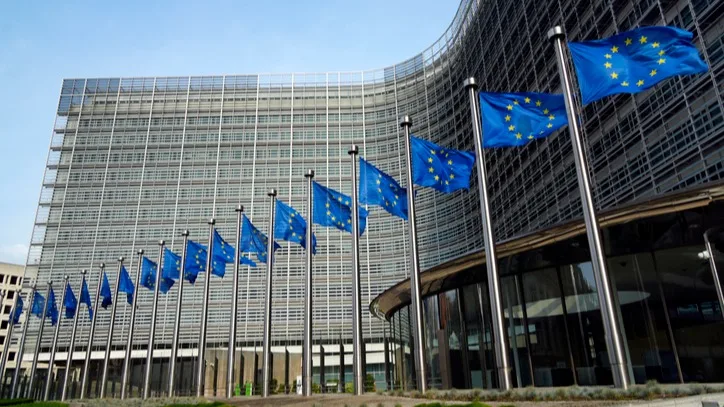
Overview
The EU’s top health official said reforms will make Europe more attractive for drug developers as FDA changes create industry uncertainty.
EU aims to streamline start-up friendly drug regulations as innovators seek alternatives to U.S. market delays
The European Union is overhauling its drug and device regulatory systems to position the continent as a destination for biopharma innovation, according to a top commissioner from the regulatory agency.
Olivér Várhelyi, European Commissioner for Health and Animal Welfare, sat down with Genentech’s Fritz Bittenbender for a fireside chat at the recent BIO International Convention to describe the EU’s efforts to bolster innovation, supply chain resilience and cooperation with other regulatory bodies around the world. These efforts are designed to make Europe more competitive at a time when U.S. biopharma industry faces uncertainty and delays from sweeping changes at the FDA.
“We want to make sure that Europe is a place where innovation is welcomed, is not only possible, but is also rewarded,” Várhelyi said.
Várhelyi outlined a broad effort to reduce red tape, speed drug approvals and harmonize regulatory requirements across EU member states. The plan includes changes to clinical trial rules, a renewed focus on science-based decision-making and programs to encourage both startups and established biopharma companies to launch products in Europe.
“We want to change the way we approach regulation,” Várhelyi said. “We want to make it more predictable, more transparent and more user-friendly.”
The EU’s proposed reforms include cutting the average approval time for new medicines to 180 days, down from the current timeline that can stretch over a year. Várhelyi said the goal is to put Europe “on a par or even ahead” of other major markets for regulatory speed.
“If you come to Europe, you can have access to a single market of 450 million people,” Várhelyi said. “You don’t need to go country by country, region by region.”
The changes come as the U.S. FDA is undergoing its own shakeup, with job cuts, new technology rollouts and updated policies that some companies say have led to missed drug review deadlines and concerns about regulatory disruption. FDA Commissioner Martin Makary, MD, spoke at the BIO convention earlier the same day as Várhelyi, and outlined his priorities and plans to streamline the U.S. agency.
Várhelyi, for his part, said Europe’s goal is not to compete with the U.S., but to ensure its regulatory system is “fit for the future” and able to attract investment.
“We don’t want to get into a race for the lowest standards,” Várhelyi said. “What we want is a system that is based on science, that is based on evidence, but at the same time is open for innovation.”
The EU’s approach also includes support for small and medium-sized enterprises and startups, including dedicated programs to help emerging companies navigate the approval process. Várhelyi pointed to planned regulatory assistance and early scientific advice as ways Europe aims to support innovators from “the first step to the last.”
“The message we want to send to the world is that if you are an innovator, you are welcome in Europe,” Várhelyi said.
The new rules still need to be finalized by the European Parliament, but Várhelyi said he is confident the proposals will pass this year.
“We have the political will. We have the ambition. Now we need to deliver,” Várhelyi said.








